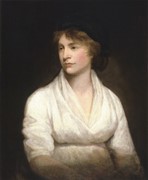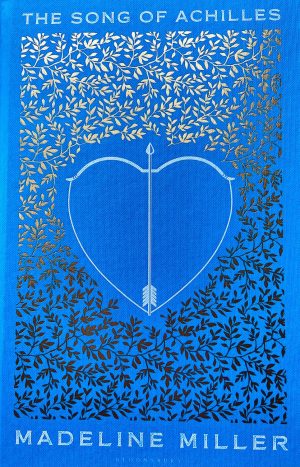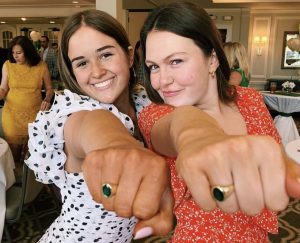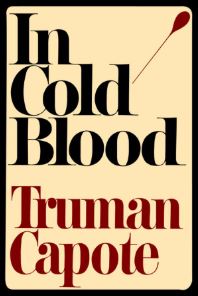Author Mary Wollstonecraft epitomized feminism

Mary Wollstonecraft was a revolutionary writer, thinker and advocate for women’s rights.
March 7, 2018
At a time when women’s rights didn’t yet exist, radical thinker Mary Wollstonecraft brought meaning to the word “feminist.”
Wollstonecraft was born in 1759 in London. Growing up with an abusive and financially unstable father, Wollstonecraft determined that she would make a living for herself. Additionally, her mother died in her early 20s, causing her to experience the dominance of men in her own life.
Through a variety of jobs, Wollstonecraft developed her passion for reform. As a teacher, she experienced the lack of education and opportunity for girls. As a governess, she found that society confined women to the existence of domestic workers. And as a writer, she learned that if she wanted to see change happen, she needed to be that change.
In 1792, she published her most famous work, A Vindication of the Rights of Women. She focused on educational reform, where men and women would receive the same educational opportunities.
“The exercise of their understanding is necessary, there is no other foundation for independence of character; I mean explicitly to say that they must bow only to the authority of reason, instead of being the modest slaves of opinion,” Wollstonecraft wrote in A Vindication of the Rights of Women.
She brought about revolutionary ideas that at the time were seen as extremely controversial, yet crucial if change were to happen. Wollstonecraft insisted that the world would only benefit if women’s intelligence was put to use.
Because of her authenticity and actions, she inspired many. Her atypical lifestyincluded birthing two children out of wedlock, which was rare at that time.
Mrs. Luann Worrall, English teacher at St. Joseph’s Academy in St. Louis, believes Wollstonecraft was a woman ahead of her time.
“She changed the focus of writing about women,” Worrall said. “She didn’t allow herself to be voiceless in a period where women were.”












